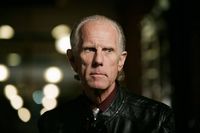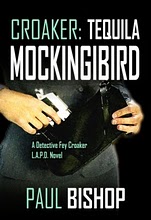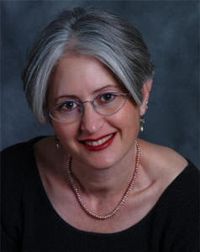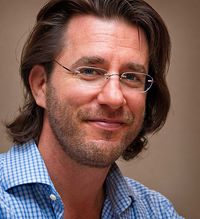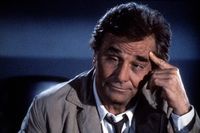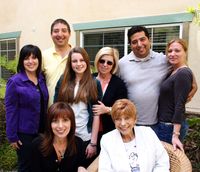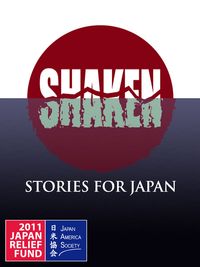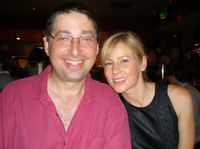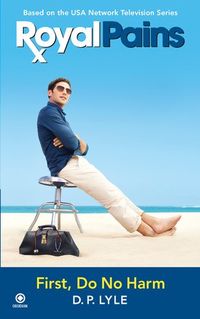I always feel guilty when I spend more time posting on someone else's blog than my own…which is what has been happening over the last few days. I have been cheating on you over at Joe Konrath's blog. He wrote a lengthy post castigating the MWA for not welcoming self-published authors as active members…so naturally I responded. A lot. But I think some of what I said, even without the context of the subsequent comment thread that prompted my remarks, is worth repeating here.
So you can read Joe's post for yourself...then come back and read this. Go ahead. I'll wait.
Okay, good to see you back.
First, let me say, that I am speaking for myself, and not in any way for the MWA.
I know ebook self-publishing is changing everything. I am earning far more self-publishing my out-of-print backlist today than I am from my traditional contracts.
I know that MWA will inevitably have to address that side of the business….but I think MWA’s rules will evolve and that these recent changes, while too incremental for Joe and some others, were a necessary and significant first step.
There are many good points in Joe's post. But his overall argument that MWA should exist to help authors sell books is too narrow. MWA does a lot of great things — like supporting book festivals & writers conferences, running speakers groups, funding Writer Beware, taking on predatory publishing practices, etc, to support their members and non-members alike.
He likes to use International Thriller Writers as a yardstick for comparison to MWA. He says they get it right where MWA doesn't.
I agree that ITW does some great things for its members that MWA doesn’t…and vice-versa.
However, the last time I checked, ITW had only let in three or four self-published authors as active members. Self-published authors are welcome to join ITW as associate members which, by the way, is also the case with MWA.
I haven't seen ITW announce that they are now including e-publishers and POD publishers as Approved Publishers…and books exclusively published in e-format or POD as eligible for Active Membership…but MWA has.
The ITW, unlike MWA, is utterly beholden to, and dependent upon, “legacy publishers.” The reason members don't have to pay dues is because the ITW lives off the royalties it earns from its anthologies published by Harlequin, among others. If any organization exists to support the old guard, it's ITW.
While they are a different organization, they are also, in many ways, exactly the same. They also have an approved publishers list, they also rely upon "legacy publishing" as a primary yardstick for professional publication, and they also have a large associate membership etc.
So I'm not seeing how ITW is getting it right where MWA isn't.
There are some also significant differences between the two organizations worth noting…
- MWA took a strong, and very public stand against Harlequin that other organizations quickly followed (notably not ITW, perhaps because the anthologies that keep their organization afloat are published by Harlequin). MWA ultimately convinced Harlequin to substantially change a program that struck many as predatory and unethical.
- MWA delisted and strongly condemned Dorchester for their miss-treatment of their authors…and other organizations quickly followed MWA's lead (notably, ITW has remained silent).
- MWA has teamed up with SFWA to support Writer Beware to expose countless publishing and literary agency scams that prey on writers (What is ITW doing to educate writers about predatory publishing practice? Zero).
I am a proud ITW member, and they have been very, very smart in how they have positioned themselves and how they are helping published writers get more traction. But MWA is about much more than that.
MWA's stand against Harlequin, for example, was geared entirely towards preventing unpublished authors from getting taken advantage of…and that's a big part of MWA’s mission…and why they partnered with SFWA to support Writer Beware.
Not only that, but MWA makes substantial financial contributions to scores of big and small book fairs all across the country (including contributing to NY is Book Country, the LA Times Festival of Books, the Miami Book Fair, etc.) to help keep them afloat because they feel supporting writers, booksellers, and the love of reading is important.
There are also countless workshops and speakers programs that MWA and its local chapters do in high schools, libraries, book fairs, and at community events nationwide to educate writers about writing, publishing, and the mystery genre.
Those efforts help ALL WRITERS published and unpublished, self-published and traditionally published, and teaches aspiring writers new skills, and encourages a love of reading and books that helps authors no matter whether they are published electronically or in print.
MWA doesn't just exist to help authors promote and sell their books (though MWA promotes its authors with a strong presense at trade events like BookExpo, Printers Row, and ALA, etc.).
They put an enormous effort into protecting aspiring writers… people who ARE NOT MEMBERS… from getting ripped off by publishing scams and con artists who prey on their hopes, desperation, and naivete.
MWA does that by educating its members as well as through the very existance of its Approved Publishers list (publishers are thoroughly vetted by the MWA’s membership committee and held to a set of high professional standards…as listed in our Approved Publishers criteria).
MWA also uses its might, which comes from its size and the respect it has earned, to leverage big publishers into halting unethical and predatory practices. That doesn't prop up the status quo…that's something MWA does, at great cost in time and money, because it's mission is more than helping successful writers be more successful. Again…all of this is done by volunteer writers.
MWA's goals, and responsibilities, and what it does for members and non-members alike, are far broader than simply helping it’s members sell books and promote themselves.
Bottom line: MWA is far, far more than just the self-publishing issue.
But you could argue, as Joe did in the comments to his post, that “teaching writing craft is a good thing, but how do my dues benefit me when they are being used to teach some newbie how to add conflict to his first short story?”
That’s a fair question. I can only answer for myself.
I pay my $95 in dues not just for what MWA can do for me… but what it does for others. I get something important out of that. You may not. That's fine.
You may not take any pride or pleasure knowing that your dues go towards teaching a newbie writer about conflict, story structure or dialog…but I sure as hell do.
You may not take any pride that your money is going to support efforts to prevent publishers from engaging in predatory and unethical conduct towards writers. I do.
You may not see any personal benefit in your money going towards exposing publishing scams and protecting writers from them. I do.
What MWA does is not always for you. Sending authors to libraries or schools may not help you sell books…but it might inspire one kid in the audience to write…or spark a love of reading….or bring new readers to the mystery genre.
I think that's a great use of my dues money. I get a personal benefit out of it that isn't calculated in books sold.
Actually, Joe and I agree on more than we disagree, though some who do not know us well would not know that from reading this long-winded post (or his).
I am the chair of the MWA membership committee, so I played a big part in crafting these rules.
I am a published author…but I am also a self-published author.
So I see this issue from both sides.
I have said it before, and I will say it again…the MWA's eligibility criteria are a work-in-progress that will change as the industry does.
Accepting novels published exclusively as ebooks or POD as making the author eligible for Active Membership is a big, and important step…one other writers organizations, including ITW, the Authors Guild, Horror Writers, etc. have yet to make.
I am sure there will be other steps to come.
